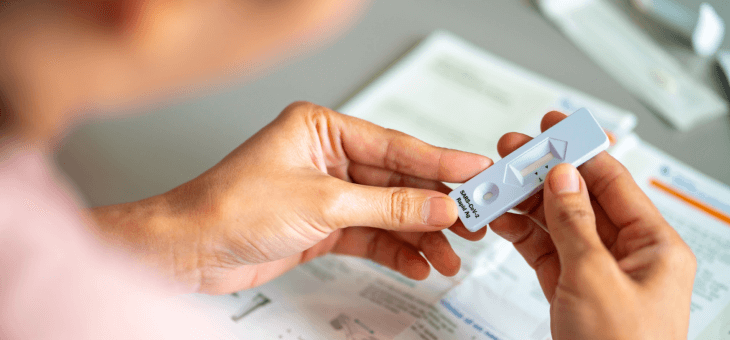Rapid antigen tests (RATs) have been an important part of our armoury in living with COVID, but with the virus constantly mutating are they still as useful as they once were?
RATs have never been as accurate as PCR tests, but they have served as a good ‘first line’ of testing, helping to prevent long queues for tests administered by health professionals. There is, however, now evidence that they are not as sensitive as they once were, depending on the COVID variant.
Testing carried out by scientists at the Harvard T.H. Chan School of Public Health and Beth Israel Deaconess Medical Centre on four commercially available rapid antigen tests – Binax, CareStart, GenBody and LumiraDx – produced some interesting results.
Read: Experts reveal best COVID recovery options
Three of the tests were shown to be less sensitive to the Delta strain than to the original SARS-CoV-2 viral strain, known as WA1. Somewhat surprisingly though, the researchers found that all four tests were as sensitive to the Omicron variant, if not more, as they were to the original.
Given that the Omicron variant is newer than the Delta variant, one would perhaps have expected to find the tests less sensitive to Omicron. Of the four brands, CareStart was the only one to demonstrate equal detection of all three strains.
The results of the study do point towards a need for RATs to evolve as the virus does. Those results did suggest, however, that the tests were still very good at detecting the more infectious cases of COVID.
Read: When to use a rapid antigen test instead of a PCR swab
Professor James Kirby, MD, director of the Clinical Microbiology Laboratory at BIDMC and co-author of the study, which was published in the Journal of Clinical Microbiology, said: “We expect that the observed loss in Delta sensitivity could have resulted in a 20 per cent or more loss of detection in potentially infectious individuals – nevertheless, the most infectious individuals still should have been detected.”
Prof. Kirby, who is also a professor of pathology at Harvard Medical School, added: “Our findings suggest that antigen test performance needs to be re-evaluated for emerging variants to ensure they still meet the intended public health testing goals of the pandemic.”
Read: What happens if I catch COVID in election week?
What does this mean for the general populace? Well, you can be reassured that RATS are still largely effective. As time passes though and the COVID virus continues to evolve, the RATs you have now may not be as sensitive and accurate.
Ideally, as COVID evolves, you will have access to the latest available RATs, enabling you to isolate when necessary and help limit the spread of the virus. This should, in turn, help slow the evolution of the virus itself.
On top of regular testing, follow government guidelines and recommendations in relation to vaccines, heed social distancing measures and wear masks whenever that’s sensible, such as in crowded areas.
If you enjoy our content, don’t keep it to yourself. Share our free eNews with your friends and encourage them to sign up.

